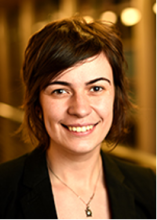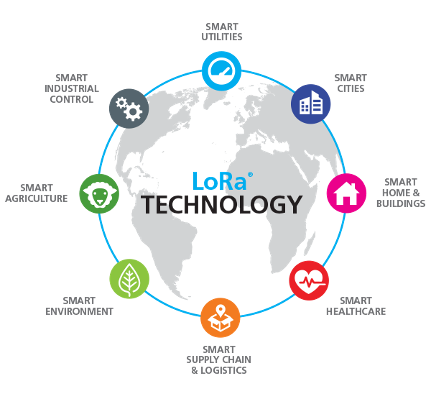A Highly Linear Distributed Amplifier Using Ultra-wideband Intermodulation Feedforward Linearization

Dr. Alex Stameroff
Operating Manager
Signal Conditioning and Subsystems, Keysight Technologies, Santa Rosa, CA
Thu, 11/16/2023
Abstract: Distributed amplifiers (DA) are critical components in various applications such as electronic measurement instruments, high-speed wireless systems, RADAR, and optical networks. In this lecture an introduction to distributed amplifiers and their applications will be presented. After this a feedforward intermodulation design technique to improve linearization will be discussed. Finally, a prototype utilizing this new technique will be presented.
Bio: Dr. Alexander Stameroff received a BS, MS, and PhD in Electrical Engineering from the University of California, Davis in 2007, 2011, and 2013, respectively. His PhD was in the field of high efficiency power amplifiers in X-band for RADAR applications. He joined Keysight Technologies (then Agilent) in 2013 as an Integrated Circuit designer. In 2020 he became manager of Keysight’s RF/mmWave Subsystem Design group. He has also been an adjunct professor with Santa Rosa Junior College since 2015. He has authored and co-authored over 20 publications in his field.
AI Alignment and RLHF: What we've accomplished, what we've learned, and what's missing!

Dr. Anca Dragan
Associate Professor
EECS Department, UC Berkeley, Berkeley, CA
Thu, 11/02/2023
Abstract: I've been thinking about how robots and AI agents more broadly can optimize for what we actually want as end users for a while now. I'll take the opportunity to reflect on what we've been able to accomplish in this area, as well as what's missing.
(RLHF = Reinforcement Learning from Human Feedback)
Bio: Prof. Anca Dragan is an Associate Professor in the EECS Department at UC Berkeley. Her goal is to enable robots to work with, around, and in support of people. She runs the InterACT Lab, where they focus on algorithms for human-robot interaction -- algorithms that move beyond the robot's function in isolation, and generate robot behavior that coordinates well with people, and is aligned with what they actually want the robot to do and work across different applications, from assistive arms, to quadrotors, to autonomous cars, and draw from optimal control, game theory, reinforcement learning, Bayesian inference, and cognitive science. She also helped found and serve on the steering committee for the Berkeley AI Research (BAIR) Lab, and is a co-PI of the Center for Human-Compatible AI. She has been honored by the Sloan Fellowship, MIT TR35, the Okawa award, an NSF CAREER award, and the PECASE award.
Warm-Start Reinforcement Learning: From Function Approximation Error to Sub-Optimality Gap

Dr. Junshan Zhang
Professor
Department of Electrical and Computer Engineering, UC Davis, Davis
Thu, 10/19/2023
Abstract: Conventional reinforcement learning (RL) techniques face the formidable challenge of high sample complexity and intensive computation load, which hinders RL's applicability in real-world tasks. To tackle this challenge, Warm-Start RL is emerging as a promising new paradigm, with the basic idea being to accelerate online learning by starting with an initial policy trained offline. Indeed, owing to the knowledge transfer from an initial policy, Warm-Start RL has been successfully applied in AlphaZero and ChatGPT, demonstrating its great potential to speed up online learning. Despite these remarkable successes, a fundamental understanding of Warm-Start RL is lacking. The primary objective of this study is to quantify the impact of function approximation errors on the sub-optimality gap for Warm-Start RL. We consider the widely used "Actor-Critic" method for RL. Our findings reveal that a 'good' warm-start policy (obtained by offline training) may be insufficient, and bias reduction in online learning also plays an essential role to lower the suboptimality gap.
Bio: Junshan Zhang is a professor in the ECE Department at University of California Davis. He received his Ph.D. degree from the School of ECE at Purdue University in Aug. 2000, and was on the faculty of the School of ECEE at Arizona State University from 2000 to 2021. His research interests fall in the general field of information networks and data science, including edge AI, reinforcement learning, continual learning, network optimization and control, game theory. He is a Fellow of the IEEE, and a recipient of the ONR Young Investigator Award in 2005 and the NSF CAREER award in 2003. His papers have won a few awards, including the Best Student paper at WiOPT 2018, the Kenneth C. Sevcik Outstanding Student Paper Award of ACM SIGMETRICS/IFIP Performance 2016, the Best Paper Runner-up Award of IEEE INFOCOM 2009 and IEEE INFOCOM 2014, and the Best Paper Award at IEEE ICC 2008 and ICC 2017.
Fair Machine Learning for Education - An Information Theorist’s Perspective

Dr. Haewon Jeong
Assistant Professor
ECE Department, UC Santa Barbara, Santa Barbara CA
Thu, 10/05/2023
Abstract: Is it a good idea to use machine learning (ML) predictions in education? Would machine learning models treat all students fairly? I will start this talk with our recent analysis on middle school and high school datasets that reveal potential fairness risks of applying vanilla ML on students. To improve fairness in ML for education, there are several practical challenges. First, there are missing values in the datasets that are not evenly distributed across groups (e.g., female and male) which could aggravate the ML model's bias. I will show a fundamental limit of learning with missing values and propose a decision-tree-based algorithm that outperforms state-of-the-art fair ML methods that do not consider missing values. In the second part, we address how to correct bias in a classifier with low-cost post-processing when we have multi-class labels and sensitive attributes. I will introduce the Fair Projection algorithm which utilizes the idea of “information projection” and how it can be applied to a wide range of classifiers while maintaining a competitive fairness-accuracy trade-off.
Bio: Haewon Jeong is an assistant professor of Electrical and Computer Engineering at the University of California Santa Barbara. She received the B.S. degree ('14) in Electrical Engineering from KAIST and the M.Sc. ('16) and Ph.D. ('20) degrees in Electrical and Computer Engineering from Carnegie Mellon University. From 2020 to 2022, she was a postdoctoral scholar at Harvard University. Her research interests include information theory, distributed computing, machine learning, and ethics of AI systems.
Application of LoRa Protocol in IoT

Mr. Roberto Medina
Hardware Engineer and Research Scholar and CEO
Sosteco
Thu, 09/21/2023
Abstract: The rapid evolution of the Internet of Things (IoT) necessitates robust and efficient communication protocols. This lecture zooms in on the LoRa (Long Range) protocol, heralded for its superior range and low power consumption in IoT applications. While traditional Wi-Fi and cellular technologies have their merits, LoRa stands out in scenarios demanding extended communication distances with minimal energy draw.
 To provide a clear perspective, we compare LoRa with other leading technologies on parameters like performance, range, power consumption, security, cost, and application suitability. Through real-world case studies, attendees will glean insights into LoRa's distinct advantages and potential challenges. By the lecture's end, participants will have a nuanced understanding of where and how LoRa fits into the broader IoT communication landscape.
To provide a clear perspective, we compare LoRa with other leading technologies on parameters like performance, range, power consumption, security, cost, and application suitability. Through real-world case studies, attendees will glean insights into LoRa's distinct advantages and potential challenges. By the lecture's end, participants will have a nuanced understanding of where and how LoRa fits into the broader IoT communication landscape.
Bio: Mr. Roberto Medina has over two decades of experience in hardware design and IoT. He worked at Alfiz, handling engineering projects and technical solutions. In 2015, he started Sosteco, focusing on the digital transformation of cities and businesses. With Sosteco, he worked with big names like Accenture and Telefónica on projects related to smart cities, IoT, and radio technologies. Roberto also collaborated with Opossum Studios on virtual reality projects using the Unreal Engine. As a Co-Founder of Metafusio, he's still active in the IoT field. His skills in leadership, hardware engineering, and communication make him a key player in the tech industry.